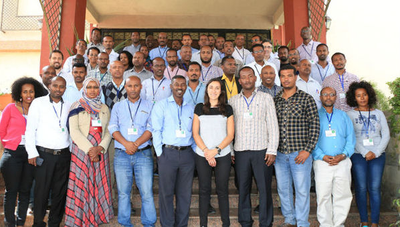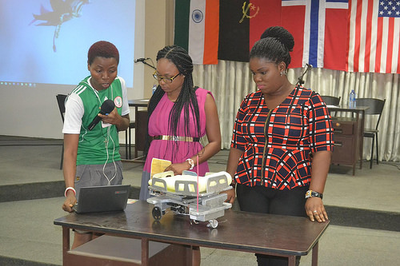A woefully low proportion of members of the world’s learned bodies and science academies are women.
A report [1] published by the Academy of Science of South Africa (ASSAf) in collaboration with the Inter-Academy Partnership (IAP) and launched on 29 February puts the figure at 12 per cent, measured across 69 national academies, including 11 in Africa: Cameroon, Egypt, Ethiopia, Ghana, Kenya, Morocco, Nigeria, South Africa, Sudan, Tanzania and Uganda.
Among the African academies that participated in the survey, the mean proportion of women members was even lower — ten per cent. However, the tally varied widely between individual academies.

The ASSAf’s 24 per cent makes it one of the most women-friendly academies in the world, but at four per cent women, Tanzania’s Academy of Sciences shares the last place globally with Poland.
The report recommends ways academies should promote greater gender parity among members. These include collecting annual data on women membership and establishing permanent structures to promote the role of women — not just within the academy but also more broadly across science, technology and innovation.
However, many of Africa’s (mostly underfunded) academies will struggle to implem
ent these recommendation, even if their leaders should want to. Better support for academies, and for research more widely, is therefore crucial to achieving better gender balance in African science.
Dearth of women scientists?
One thing is certain: The problem is not that there aren’t enough women scientists. Across the world, the proportion of women in science generally is vastly bigger than the proportion of women on the academies. So why is that?
Many blame childcare and family responsibilities for the dearth of women that reach the highest echelons of academic institutions.
But is that really all that there is to it? In the United Kingdom, for instance, the Royal Society has six per cent women members, while women, according to Nature [2], hold 18 per cent of the country’s professorships. The picture is more or less the same all across Europe.
In Africa, it is difficult to find data on the numbers of professorships held by women. However, the disparity between the ratio between men and women scientists generally, and that found in the academies, mirrors the trends found in Europe and elsewhere.
For instance, Ugandan women make up 24 per cent of the country’s scientists overall.
However, women only make up 13 per cent of the Uganda National Academy of Sciences’ members. And in South Africa there is near-parity between men and women in research jobs across the board. Against that background 24 per cent women in the academy is “not a number to be proud of”, said Daya Reddy, president of ASSAf, at the report’s launch in Hermanus, South Africa.
Africa Analysis: Give women a push in science academies Read more: SciDevNet

